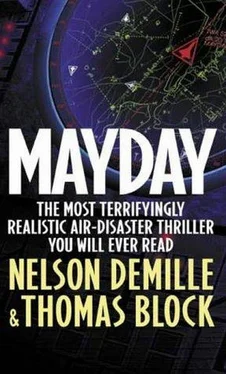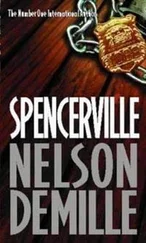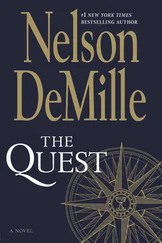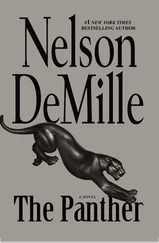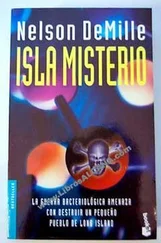Nelson DeMille - Mayday
Здесь есть возможность читать онлайн «Nelson DeMille - Mayday» весь текст электронной книги совершенно бесплатно (целиком полную версию без сокращений). В некоторых случаях можно слушать аудио, скачать через торрент в формате fb2 и присутствует краткое содержание. Жанр: Триллер, на английском языке. Описание произведения, (предисловие) а так же отзывы посетителей доступны на портале библиотеки ЛибКат.
- Название:Mayday
- Автор:
- Жанр:
- Год:неизвестен
- ISBN:нет данных
- Рейтинг книги:4 / 5. Голосов: 1
-
Избранное:Добавить в избранное
- Отзывы:
-
Ваша оценка:
- 80
- 1
- 2
- 3
- 4
- 5
Mayday: краткое содержание, описание и аннотация
Предлагаем к чтению аннотацию, описание, краткое содержание или предисловие (зависит от того, что написал сам автор книги «Mayday»). Если вы не нашли необходимую информацию о книге — напишите в комментариях, мы постараемся отыскать её.
Mayday — читать онлайн бесплатно полную книгу (весь текст) целиком
Ниже представлен текст книги, разбитый по страницам. Система сохранения места последней прочитанной страницы, позволяет с удобством читать онлайн бесплатно книгу «Mayday», без необходимости каждый раз заново искать на чём Вы остановились. Поставьте закладку, и сможете в любой момент перейти на страницу, на которой закончили чтение.
Интервал:
Закладка:
The target maintained a steady course of 342 degrees. It had gradually slowed during its descent, and it now held a speed of 340 knots. Flying the F-18 over three times the target’s velocity, he was quickly closing the remaining distance between them. He would intercept the target shortly.
Matos had been splitting his attention between the radar and the windshield, and now that he had the target in visual contact, he kept his eyes fixed on it. “Navy three-four-seven has visual contact,” he transmitted.
“Roger,” Sloan answered, his tone impatient.
Matos paid no attention to the implied message. He had stopped worrying about Sloan, and instead concentrated completely on the job at hand. To stay emotionally uninvolved was the proper attitude in any scientific trade.
Matos’s left hand eased back the F-18’s throttles. He began a reduction that would have his aircraft flying at a similar speed when he pulled alongside the target, thus avoiding an overshoot. Formation flying was still a matter of practice, skill, and gut reactions. In the modern fighter pilot’s repertoire, it was one area that had yet to be taken over by electronics. Peter Matos was particularly good at high-speed formations. He would sometimes lay far astern of his squadron, then zoom up and rapidly tuck into his assigned slot. “Nice showboat,” his buddies would radio, but everyone was impressed. Matos was good.
Yet today he was having a problem. The target stayed its distance. Matos had misjudged. He had begun a speed reduction from a point too far away. The hundreds of subtle clues that went into compiling a pilot’s instinctive reactions were somehow off base. Something was wrong. Matos took his eyes off the black dot on the horizon and glanced at his radar screen.
Six miles. Christ, he thought. How could it still be that far? Matos looked out the windshield. He sped up again, and the distance shortened. The black dot was apparently not a drone. It was too big. That was what had thrown off his speed adjustment and perception. His mind’s eye had expected a ten-foot object, and he had played off his airspeed accordingly.
As the space between them narrowed, the size of the target grew rapidly. It was huge. The first distinguishing mark was a horizontal line across the middle of the structure. A wing line. Then the tail section sprouted from the indistinctness. Matos sat stunned. It was an aircraft. A large jet. “My God!”
A commercial transport! There was no doubt in his mind that this was the target he had hit. The craft appeared ghostly, like a ship abandoned on the high seas. Dead in the water. He closed the remaining distance without any additional thoughts or feelings.
Matos pulled alongside. The Trans-United logo seemed incongruous. Vibrant colors-green, blue, and yellow. Living colors on a dead ship.
The Straton 797 looked eerie, as if the aircraft itself knew what had happened to it and who had done it. It flew with its nose canted slightly upward. Its four jet engines produced a continuous flow of exhaust gases. It was holding steady at 11,000 feet and was making an airspeed of 340 knots. Matos guessed that it was being flown by its computer.
Matos maneuvered his fighter closer. He scanned the port side of the wide-bodied fuselage and saw what he was looking for. The hole. A black spot on the silver body, like an ominous spot on an X-ray. He took his craft around to the starboard side. The exit hole, like an exit wound of a bullet, was much larger. Huge, jagged, ugly. His hands, then his knees, began to shake. He threw his head back and looked up out of his bubble into the sky. “Oh, Jesus. Oh, God.”
He did not look at the Straton for a long time. Finally he forced himself to study it again. There were no people visible at any of the windows. No eyes looked back as he flew parallel with the rows of Plexiglas, only thirty feet from where the people should have been. He had flown intercepts on transports before, and he knew he should be seeing the people. Matos nudged the throttles and flew forward to get beside the cockpit. No heads in the cockpit, either. There were no people anywhere. No passengers, no crew. No survivors.
“Three-four-seven!” the radio shouted, and Matos jumped. Sloan’s sudden transmission had startled him. “Are you there? What the hell’s happening?”
“I… Homeplate…” Matos’s thumb stayed locked to the microphone button. As he allowed his F-18 to drift aft and fly a looser formation, the shadow from the transport’s upper fuselage crossed his canopy. From below, the 797 appeared incredibly immense. Matos’s F-18 seemed an insignificant speck. He was piloting a toy compared to the mammoth machine he hovered beneath.
Yet the unimaginable had happened. Matos’s toy had destroyed a great airliner. Beyond all doubts and all talk lay the reality of what was in front of him. His face was covered with sweat, and his eyes welled up with tears. “Homeplate. We have hit a transport. A Straton 797. Trans-United.”
There was no reply from the Nimitz.
4
John Berry lay unconscious in one of the first-class lavatories of the Straton 797. His breathing, which earlier had been forced, had relaxed to its normal rate again. He was motionless except for the involuntary trembling of his left hand. His mind wrestled through layers of troubled dreams triggered by his unnatural sleep. Slowly, like the imperceptible lifting of an early-morning fog, John Berry awoke.
He opened his weighted eyes. He turned his head slowly and looked around the small room without comprehending where he was. At first he could recall nothing beyond his own identity.
John Berry attempted to raise himself from his slumped and uncomfortable position on the floor, but his muscles would not respond. No strength, he said to himself. That had been his first rational thought. Lying on the floor while he gathered the energy to get up, he spotted a shiny object near him. His wristwatch. He picked it up. 11:18. It jarred his memory, and all the missing pieces fell into place. Gradually, he remembered where he was, and then why. He realized that he had been unconscious for fourteen minutes. Decompression, he thought. An opened door. A blown-out window. He could figure out that much. He had read articles about it in aviation magazines.
Still flying. His senses told him that the Straton airliner was being held straight and level, and he could feel the reassuring pulses of engine power through the airframe. The knowledge that the crew still had the ship under control was comforting.
Berry grabbed at the rim of the washbasin and pulled himself up. His legs were still wobbly, and he was light-headed. He vaguely recalled having vomited, and he saw the evidence of it in the corner. But he had already begun to feel better. He looked at his reflection in the mirror. He looked all right. No cuts or bruises, although he had dark circles around his eyes. The eyes themselves were red and watery.
Berry took a few deep breaths and shook his head to clear it. He felt as though he had a giant hangover, except that the symptoms were disappearing rapidly. He would be all right, he assured himself. Decompression was a temporary thing. No permanent damage. It was like passing out from too many martinis. Too many martinis was probably worse. He already felt nearly normal.
Berry reached for the door handle. He pulled on it tentatively, remembering that he could not open it earlier. But the Straton’s pressurization system had automatically shut down once Flight 52 had reached a life-supporting altitude, and there was no longer any airflow coming from the vents behind him. To Berry’s surprise, the door yielded easily. He opened it and stepped into the passenger compartment.
John Berry had no preconceived notion of what to expect in the cabin. He had not let his mind get that far ahead, yet subconsciously, he certainly expected nothing too far from the ordinary. As his eyes took in the scene, what he witnessed caused him to step backward against the fiberglass wall. The appalling sight filled his brain, and a primeval scream rose from the depths of his soul. Yet he made no outward cry.
Читать дальшеИнтервал:
Закладка:
Похожие книги на «Mayday»
Представляем Вашему вниманию похожие книги на «Mayday» списком для выбора. Мы отобрали схожую по названию и смыслу литературу в надежде предоставить читателям больше вариантов отыскать новые, интересные, ещё непрочитанные произведения.
Обсуждение, отзывы о книге «Mayday» и просто собственные мнения читателей. Оставьте ваши комментарии, напишите, что Вы думаете о произведении, его смысле или главных героях. Укажите что конкретно понравилось, а что нет, и почему Вы так считаете.
